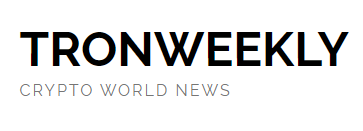- The SEC has recognized 21Shares’ proposal to introduce staking for its Ethereum fund.
- Staking could help the ETF earn extra income from its Ethereum assets, which might be shared with investors.
The SEC has confirmed the receipt of a request from Cboe BZX Exchange on behalf of 21Shares. The filing asks for permission to stake Ethereum included in the 21Shares Core Ethereum ETF.
SEC Reviews Ethereum ETF Staking Proposal
On Wednesday, the US Securities and Exchange Commission (SEC) acknowledged the 19b-4 filing proposal for Ethereum ETF staking from Cboe BZX Exchange. The SEC agency responded to the request submitted on behalf of 21Shares, inviting the public opinion on the plan to allow the 21Shares Core Ethereum ETF to stake its ether (ETH).
Notably, James Seyffart, one of Bloomberg ETF analysts recently pointed out that this is the first ETF submission explicitly requesting Ethereum stake approval. If accepted, it would mark the first instance of an Ether ETF offering a stake in the U.S. The move could draw increased interest from both retail and institutional investors.
This move follows a filing by NYSE Arca last week, which requested approval to allow staking in Grayscale’s Ether ETFs. The Grayscale Ethereum Mini Trust ETF was introduced following the firm’s initial conversion of its Ether Trust into an open-ended fund.
It currently manages nearly $1.3 billion in assets. Coinbase serves as the custodian for the 477,428 ETH owned by the trust.
The SEC’s Position and it’s Ongoing Regulatory Challenges
In past times, the SEC has maintained a strict approach toward proof-of-stake assets, especially under former Chair Gary Gensler, who classified staking-related activities as securities. This led many Ether ETF issuers to exclude staking from their filings to comply with the SEC regulations.
However, the Trump administration, which is pro-crypto, has caused the agency to take a more crypto-friendly stance by forming a dedicated task force to evaluate digital assets. This group is now reconsidering whether certain tokens should be categorized as securities.
Analysts believe that clearer rules on staking could boost adoption, particularly among institutions seeking higher returns in the crypto market. In addition, the SEC approved spot Ether ETF last year and has shown more flexibility toward digital assets.
Recently, there has been a high demand for Ethereum ETFs among institutions. In the last quarter of 2024, holdings by institutional investors increased from 4.8% to 14.5%. This trend shows a rising preference for Ether investment at the institutional level, which could grow even more if staking is allowed.
Related | Shiba Inu’s Price Slumps 50%, Community Awaits Rebound

 7 months ago
45
7 months ago
45




 English (US) ·
English (US) ·